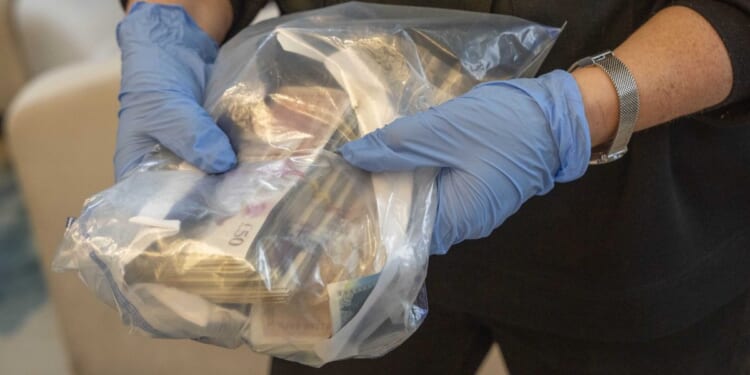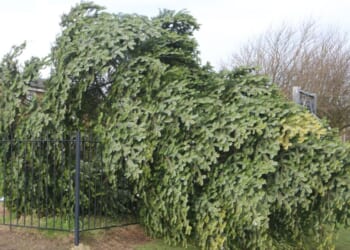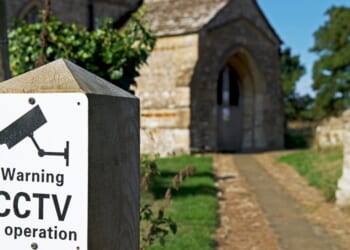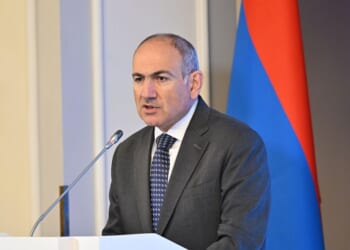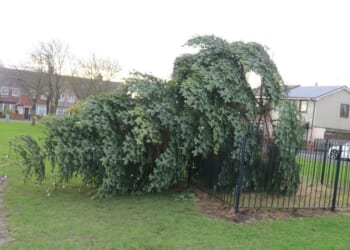Children as young as 13 and 14 are running violent county lines drug gangs across the UK, a leading children’s expert has warned – as school exclusions and vanishing “ghost pupils” fuel an explosion in exploitation.
In an exclusive interview with GB News, Baroness Anne Longfield, former Children’s Commissioner for England, said children barely into their teens are now “heading up drug networks,” controlling supply lines up to 80 miles long, ordering punishments, wearing balaclavas, and brandishing machetes.
She said: “It’s not uncommon to see 13 or 14-year-olds at the top of these operations.”
“They’re running drug lines across counties, handing out punishments, using threats, and operating like a business – a very ruthless one.”
In some areas, police and social workers say the criminal model has flipped – with children becoming the kingpins while older gang leaders operate behind the scenes.
The number of children referred for criminal exploitation has soared by 50 per cent in just two years, rising from 10,140 to 15,700. But Ms Longfield says the true scale is far worse: “It’s the tip of the iceberg.”
Many children caught up in county lines are never officially flagged. Some are frightened into silence.
Others have slipped through the cracks of a school system in crisis – including tens of thousands of “ghost children” who stopped attending school during the pandemic and never came back.
Recent figures show school exclusions have rocketed – leaving thousands of vulnerable kids exposed to grooming and gang recruitment.
Government data shows there were 10,900 permanent exclusions in 2022/23 – up 16 per cent from the previous year.
LATEST DEVELOPMENTS:

In some areas, police and social workers say the criminal model has flipped – with children becoming the kingpins
|
GETTY
There were also 955,000 suspensions (temporary exclusions) – a 21 per cent rise on 2021/22.
And 471 children who were excluded last year aged six or younger were permanently excluded.
Speaking to the Family Talk podcast – run by the children’s care provider Care Visions, Baroness Longfield said: “When a child is removed from school, they lose protection. They’re no longer seen. That’s when the gangs move in.”
She warned that school exclusion is now one of the biggest predictors of gang exploitation, describing it as a “direct pipeline” to crime.
“If you’re not in school – no teachers watching, no structure, no support – you are exposed.”
Since the Covid lockdowns there has been an estimated three fold increase in the number of children who are regularly completely absent from school. Today one in five pupils is now persistently absent – missing 10 per cent or more of school.

Baroness Anne Longfield, former Children’s Commissioner for England, said children barely into their teens are now ‘heading up drug networks’
|
X
And around 170,000 children in England are now classed as severely absent, missing most of their education entirely.
A recent report from the Education Policy Institute found the number even higher with an estimated 300,000 children aged five to 15 missing from education in 2023, with up to 400,000 children “not in school” altogether.
Pupil referral units, often the only option for excluded children, offer just a few hours of education a week, leaving children vulnerable, isolated, and easy targets, Baroness Longfield told the podcast.
She said often services, such as police or social services, are not set up to give proper help.
One desperate mother, Baroness Longfield said, paid off a £300 drug debt to rescue her 15-year-old son from a gang. “She went to the group, met the older boys, handed over the money, and said, ‘Leave him alone.’ And they did. But she had to do it herself – there was no help.”
The family later set up a support group for other parents, she added.

Many children caught up in county lines are never officially flagged
|
GETTY
She said that with youth services decimated and social care stretched to breaking point, some families are “funding their own interventions” – paying for youth workers, mentoring, even security, because councils no longer provide it.
Since 2010, over 1,200 youth centres have shut down in England – a cut of nearly 75 per cent in some areas. “We’re leaving kids to fend for themselves,” Longfield said. “And they’re being picked up by people who will ruin their lives.”
The Commission on Young Lives charity, chaired by Longfield, is now calling for the Government to act urgently – with a national “Sure Start Plus” programme for teenagers, new laws to punish those who exploit children, and an end to the “culture of exclusion” in schools.
So far, the Government has pledged to set up 50 support hubs, but Baroness Longfield warns that help isn’t coming fast enough. “We need urgent action.”
Baroness Longfield insists that prevention is vital.
While the Government has pledged to open 50 hubs where families and children can access a range of services all in one place, Baroness Longfield says this is not enough.
She has called for an end school exclusion culture, especially for primary-age children.
She has also demanded coordinated national leadership across health, police, schools, and social care to prevent exploitation.
The scale of the crisis is now so severe, she says, that “there isn’t a town or city in England untouched by this.”
A Home Office spokesman said: “County lines is the most violent and exploitative model of drug supply, and we are determined to stop these heartless criminal gangs from luring young people into a life of crime.
“That is why we are investing more than £43m this financial year in the County Lines Programme, to target exploitative drug-dealing gangs whilst breaking the organised crime groups behind this trade.
“In addition, this government has introduced a new offence and prevention orders which will target adults who unscrupulously groom and exploit children into criminal activity.”

